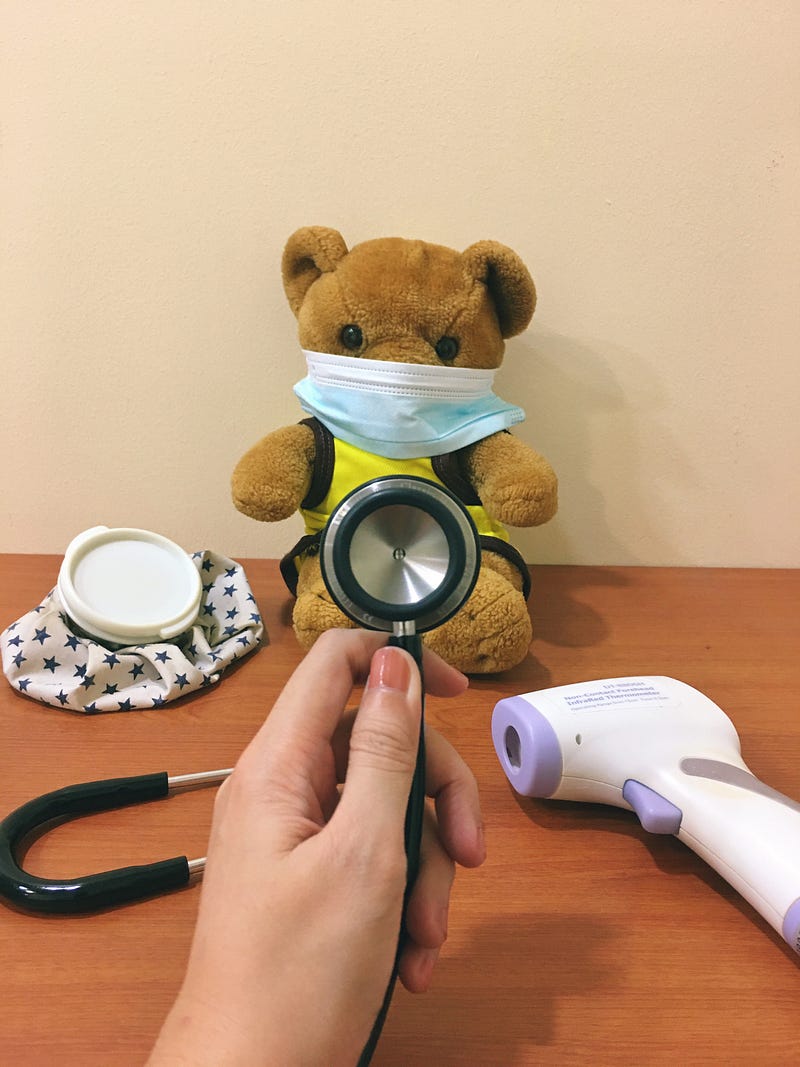
# Immunology: Investigating the Interplay Between Gut Microbiota and Immune System in Health and Disease
Immunology is a branch of science that explores the complex interactions between the immune system, microorganisms, and their impact on human health. In recent years, there has been growing interest in understanding the interplay between gut microbiota — the community of microorganisms residing in our gastrointestinal tract — and the immune system. This article delves into current research efforts investigating this fascinating relationship and its implications for both health and disease.
## The Gut Microbiota: A Complex Ecosystem
The human gut harbors trillions of microorganisms, including bacteria, viruses, fungi, archaea — collectively known as gut microbiota. This diverse ecosystem plays a crucial role in various physiological processes such as digestion, metabolism, nutrient absorption — and importantly — an active participant in modulating our immune responses.
## Communication Pathways Between Gut Microbiota and Immune System
The interaction between gut microbiota and the immune system occurs through multiple pathways:
1. **Microbial Signaling Molecules:** Bacteria within the gut produce metabolites like short-chain fatty acids (SCFAs), vitamins (such as vitamin K), indole derivatives — that can directly influence immune cell function.
2. **Epithelial Barrier Integrity:** The epithelial cells lining our intestines form a physical barrier preventing harmful substances from entering systemic circulation while allowing selective transport of nutrients. Gut microbes help maintain this barrier integrity by promoting tight junction formation — a critical aspect of intestinal homeostasis.
3. **Pattern Recognition Receptors (PRRs):** PRRs are receptors expressed by various cells — including those of innate immunity — capable of recognizing specific microbial molecules called pathogen-associated molecular patterns (PAMPs). Activation of PRRs triggers downstream signaling cascades leading to an appropriate immune response against potential pathogens or maintaining tolerance towards commensal bacteria.
4. **Regulatory T Cells (Tregs):** Certain gut bacteria have been shown to induce the development and activation of regulatory T cells — a subset of immune cells that help maintain immune tolerance by suppressing excessive inflammation or autoimmunity.
5. **Immunoglobulins:** Gut microbiota influences the production and class-switching of immunoglobulins — antibodies produced by B cells — which play a vital role in targeting specific pathogens for elimination.
## Impact on Health: Balancing Immune Responses
A balanced interaction between gut microbiota and the immune system is crucial for maintaining optimal health:
1. **Immune Development:** Early-life exposure to diverse microbial communities helps shape a properly functioning immune system, promoting tolerance towards harmless antigens while providing protection against pathogens.
2. **Inflammation Regulation:** The presence of certain beneficial bacteria can dampen excessive inflammatory responses, preventing chronic inflammation associated with various diseases like inflammatory bowel disease (IBD), allergies, or autoimmune disorders.
3. **Metabolic Homeostasis:** Gut microbes influence energy metabolism, adiposity (body fat composition), insulin sensitivity — and consequently impact metabolic conditions such as obesity and type 2 diabetes — conditions often linked to low-grade systemic inflammation.
## Dysbiosis & Disease Associations
An imbalance in gut microbiota composition or dysbiosis has been implicated in various diseases:
1. **Inflammatory Bowel Disease (IBD):** Dysregulated immune responses toward commensal bacteria are thought to contribute to IBD pathogenesis — characterized by chronic intestinal inflammation seen in conditions like Crohn’s disease or ulcerative colitis.
2. **Autoimmune Disorders:** Altered gut microbial profiles have been reported in autoimmune conditions such as rheumatoid arthritis, multiple sclerosis — an indication that disruptions within this ecosystem may influence susceptibility or progression of these disorders.
3. **Allergies & Asthma:** Studies suggest an association between early-life gut microbial composition and the development of allergic diseases like asthma, eczema, or food allergies.
4. **Metabolic Syndrome:** Dysbiosis has been linked to metabolic syndrome — a cluster of conditions including obesity, insulin resistance, dyslipidemia (abnormal lipid levels), and hypertension — highlighting the potential impact of gut microbiota on metabolic health.
## Therapeutic Approaches: Modulating Gut Microbiota
The emerging understanding of the gut microbiota-immune system interplay opens up possibilities for therapeutic interventions:
1. **Probiotics & Prebiotics:** Probiotics are live beneficial bacteria that can be consumed as supplements or found in certain foods. Prebiotics are dietary fibers that selectively promote the growth of beneficial microbes within our gut. Both probiotics and prebiotics aim to restore microbial balance and enhance immune function.
2. **Fecal Microbial Transplantation (FMT):** FMT involves transferring fecal matter from a healthy donor into a recipient’s gastrointestinal tract — with the goal of restoring a diverse and balanced gut microbiota composition.
However, it is important to note that while these approaches hold promise, more research is needed to fully understand their efficacy, safety profiles — and identify optimal strategies for specific diseases.
## Future Directions
Ongoing research aims to further unravel the intricate relationship between gut microbiota and immune responses by:
1. Identifying specific bacterial species or consortia associated with health benefits or disease risk — enabling targeted interventions.
2. Investigating how external factors such as diet, medications (e.g., antibiotics), stress influence gut microbial communities — and consequent immune outcomes.
3. Advancing technologies for studying complex microbial ecosystems — including high-resolution sequencing techniques — to better characterize individual-specific variations in gut microbiota.
## Conclusion
The interplay between gut microbiota and the immune system represents an exciting frontier in immunology research — one with vast implications for human health and disease. As we continue to unravel the intricate mechanisms involved, a deeper understanding of this symbiotic relationship can guide the development of novel therapeutic strategies — aiming to restore balance within the gut microbial ecosystem and harness its potential for improving immune function.
*Note: This article provides an overview based on current knowledge; it does not replace professional medical advice.*

No comments:
Post a Comment